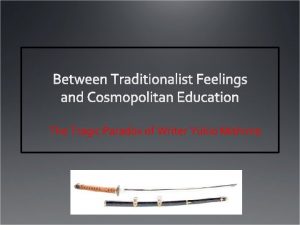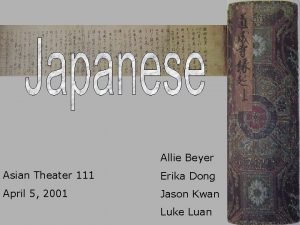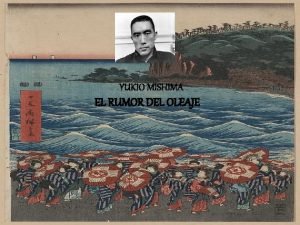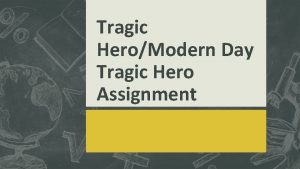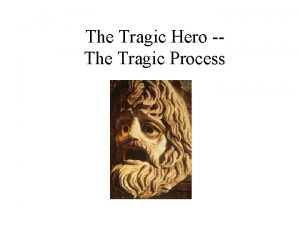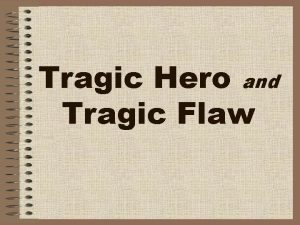The Tragic Paradox of Writer Yukio Mishima Yukio






- Slides: 6

The Tragic Paradox of Writer Yukio Mishima

Yukio Mishima (1925 -1970) Real name: Kimitake Hiraoka. A direct descendant of the first Tokugawa shogun. Started writing as a child. Avid reader of European literature. Spoke English, French, and German. Traveled abroad extensively. Author of numerous novels, stories, plays (Western style and Noh), and essays.

Yukio Mishima: Inadvertent Cultural Hybridity Became internationally famous and widely translated in late 1940 s. Thrice nominated for the Nobel Prize for literature. Traditionalist themes, avant -garde style. Ceremonial death as one of his major themes (ex. , “Patriotism”, a story about a couple’s double suicide).

Yukio Mishima: Body as Ideology Was turned down by the military during World War II due to health issues. Trained to be a bodybuilder and master swordsman. Starred in films and modeled for photographers. Committed seppuku in a symbolic gesture of destroying his best creation: his body.

Yukio Mishima Opposing Hybridization of Japan Extreme right political views: militarism, nationalism, traditionalism (the samurai code); the idea of the emperor as a living god. Attempted a coup d’état with a group of followers. Committed a ritual suicide: “Harakiri makes you win” (Mishima).

Japanese vs Western “Thermos Flasks” (1953) 1. Why are the events set in San Francisco? 2. How does this setting influence the characters? 3. How is cultural hybridity represented? 4. What is the underlying attitude to Western and Japanese people, customs, and things? 5. What changes occur as Kawase returns to Japan? 6. How do the author’s values and personality reveal themselves in the story?
